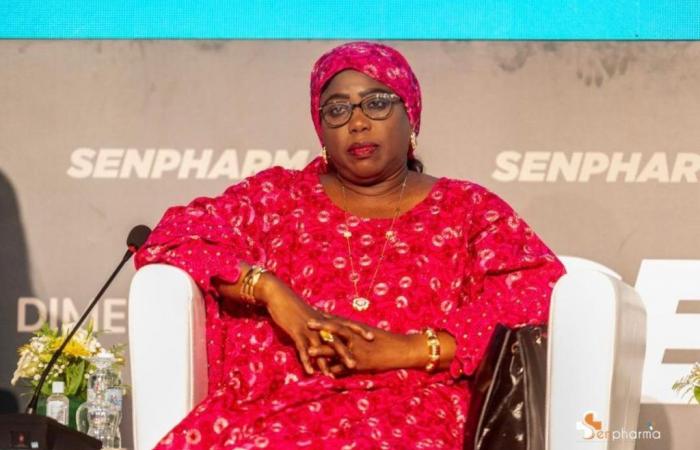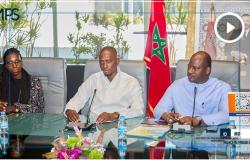The Senpharma drug fair, held on June 26 and 27 in Dakar, Senegal, under the theme “Integrated patient care: What strategies for collaboration between professionals?” ”, was an important platform this year for all stakeholders in the health sector. The discussions focused on the real challenges, crucial issues and promising prospects of parapharmacy. The event was co-organized by the Senegalese Pharmaceutical Regulatory Agency (ARP) and AGENCE DIMENSIONS, a specialist in the organization of international events.
For the ARP, this show is a moment “to raise awareness and share the pharmaceutical regulations governed in Senegal”. According to Doctor Oumy Kalsoum Ndiaye Ndao, “Senegal since 2021 has been undergoing the evaluation test of its regulatory system”.
“We are today in the Senpharma Show, in its 10th edition which was for the ARP to come and share the mission through national political monitoring, strategic orientations to regulate the pharmacy sector. And since its creation in 2022, on a popularization phase to make its missions and expectations known. The show with our colleagues was an opportunity to come to the general pharmaceutical public throughout the pharmaceutical ecosystem, which also includes pharmacists, financiers, managers who revolve around medicines, to make known, to share the pharmaceutical regulations governed in our country”, declared Doctor Oumy Kalsoum Ndiaye Ndao, General Director ARP.
Which, according to her, will allow the actors to align themselves both in policy, vision, and the implementation of these policies.
“Since 2021, Senegal has been on this test of evaluating our regulatory system. 2021 had produced a maturity level 1, with more than 187 recommendations to which Senegal responded immediately with an integrated action plan for implementation. And from this, there were flagship recommendations on the 9 regulatory functions,” said Ms. Ndao.
Reduction of WHO recommendations
She continues: “Senegal has rolled out the establishment of this agency by decree 824, the devolution of the assets of the DPM and the LMCM to the implementation of the functions to respond to this WHO attack on the 187 recommendations. In 2022, we reduced at the beginning of 2023 in May, we went to 33, December 2023, we were at a single recommendation which consisted of returning the keys to the control laboratory which was being renovated with the biovaccine laboratory,” she says.
In the process, the Director General of the ARP adds: “In December 2023, Senegal’s self-assessment gave a maturity level 3 out of the 9 regulatory functions. But the process is that when the country completes its assessment, the WHO sends experts who come and verify this assessment. So evaluation is an angle of analysis. In relation to a vision.”
And what emerged from this assessment from April 28 to May 4, she emphasizes, “is that out of our 9 regulatory functions, the 7 regulatory functions were at maturity level 3. Among them, we have inspections, clinical trial, regulatory system, licensing, market surveillance, drug control have all moved to maturity level 3.”
“For the 8th function vaccine, we are at maturity 3, but the Pasteur Institute in Dakar must trigger the Madiba procedure which is planned for the end of July so that we can submit new data. The levels of vigilance for pharmacovigilance remain a recommendation that needed to be supplemented,” she explained.
“Level 3 involves several impactful results”
Furthermore, Dr Oumy Kalsoum Ndiaye Ndao clarified: “If the minister says that we are of maturity 3 yes, but we are waiting for confirmation from the WHO on the official label with a return report. Today, we are in the national expertise.”
For the Director, “the WHO defines a country from one level to a regulatory system which is there, but which does not solve the problem. Level 2 is there, but not integrated. We are in maturity 3. What remains is what the WHO gives us the discharge and the official report,” suggested Ms. Ndao.
According to her, level 3 implies several impactful results. “The first thing, for a vaccine producing product, a country, we cannot release batches of vaccines recognized for marketing if the country is not at maturity level 3. Everything that is an effort around the Madiba project, around the Pasteur Institute is supported by this maturity level 3.”
The second thing, she said, is the sub-regional common market. “It clears the credibility of the drug. When an agency is maturity level 3, it reaches the threshold of being popularized and recognized nationally and internationally,” concluded Doctor Oumy Kalsoum Ndiaye Ndao.






